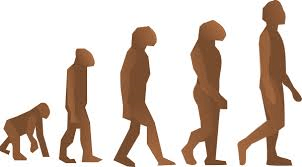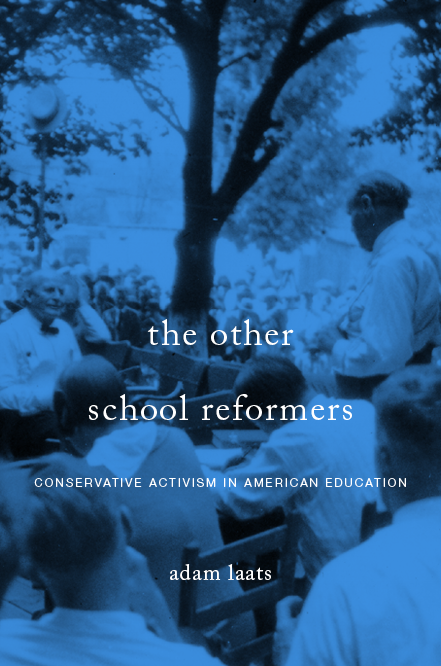It’s a deceptively simple question and it lies right at the heart of the creation/evolution controversies. Unfortunately, Keith Blanchard’s recent opinion piece on the subject seems to miss the point. Not because Blanchard doesn’t understand the issues, but because he deliberately hopes to change the conversation. But it’s not that simple. In at least two important ways, we need to wonder more deeply what we mean when we say we “believe” in evolution.
Blanchard writes from the heart of mainstream science. We shouldn’t say we “believe” in evolution, Blanchard writes. As he puts it,
if someone asks, “Do you believe in evolution,” they are framing it wrong. That’s like asking, “Do you believe in blue?”
Evolution is nothing more than a fairly simple way of understanding what is unquestionably happening. You don’t believe in it — you either understand it or you don’t…
Of course, we see what he means. I even agree with his position. But IMHO, this line or argument is nearly entirely beside the point. It puts us evolution-supporters in the silly position of insisting that there is no debate about evolution. Like Blanchard, we mean that the scientific facts of evolution are not open to debate, any more than is the fact of gravity or the fact of blue.
But so what? How does that position get us anywhere?
Because there IS a debate about evolution, obviously. Lots of influential people do not accept the facticity of evolution. They do not accept that evolution explains the deep history of species on this planet. Therefore, it matters to say that we believe in evolution. Saying we “believe” in evolution, politically, means taking a stand about educational politics and cultural politics.
On a more basic level, too, saying that we believe in evolution has a value beyond Blanchard’s knee-jerk empiricism. After all, in our society, we believe all sorts of things about which we only have a tentative or tenuous understanding. For instance, when we have a serious medical malady, we trust in what medical experts tell us. Not blindly, of course, but we talk to several experts and decide on a treatment course that seems to make sense to us. We don’t necessarily understand every jot and tittle of the medical science. But we take the life-or-death advice of doctors. When it matters, we trust our experts.
And that is also the case here. Saying we “believe” in evolution means something different than saying we understand its meaning. Saying we “believe” in evolution means we trust a certain set of authorities over others. Not blindly, of course, but in general outline. So, for instance, when the National Center for Science Education mounts its Project Steve, I’m convinced. The sheer numbers of mainstream scientists who publicly announce their “belief” in evolution convinces me.
After all, for educated folks these days, the un-interpreted evidence of our senses has long been suspect. Blanchard writes that we should all trust the “evidence of [our] own senses.” If we do so, he concludes, we’ll be convinced about the fact of evolution. But educated people know that their senses might mislead them. After all, the intuitive case for creationism is very strong. Things seem to have been created according to some system, some plan. Creationists might regularly appeal to people’s senses to prove their point, along the lines of Paley’s watchmaker.
As careful studies have proven, people who reject evolution don’t necessarily have a spottier understanding of science. Contrary to what Blanchard says, people can and often do understand evolution yet reject it. Michael Berkman and Eric Plutzer, for example, concluded from their large-group study of science teachers that creationists have an edge beyond the logic of folks like Blanchard. Even among those Americans who understand that mainstream scientists agree on evolution, Berkman and Plutzer found, a large majority prefers that public schools teach both evolution and creationism. That’s right: Even those Americans who know what mainstream science says about evolution still want schools to teach creationism.
In a world like that, Blanchard’s argument seems at best irrelevant. Insisting that evolution is a simple fact, either to be understood or not understood, makes no sense in these circumstances. On the other hand, if we say we “believe” in evolution, we’re doing something important. Something with necessary political weight.
But there is one sense in which we should not try to “believe” in evolution. Not Blanchard’s sense, but a more nuts-and-bolts kind of meaning. As I’m arguing in an upcoming book with co-author Harvey Siegel, public schools need to get out of the belief business when it comes to evolution education. That is, the goal of evolution education must not be to convince students to “believe” in evolution. Rather, the goal should be to make sure all students understand it.
In a way, this is what Blanchard is saying, but I wonder if he would recoil in disgust from the implications. Blanchard wants people to understand evolution. We don’t “believe” in something that is obviously true. We don’t “believe” in facts of nature.
In contrast, our prescription for public schools is that teachers adopt the goal of leading students to an understanding of evolution, and no more. Students should be led to understand the principles of evolution, its mechanisms, and its evidence. If they then choose not to “believe” evolution, that is an entirely private matter, beyond the realm of public school goals.
I don’t know for sure, but I suspect that this sort of “understanding-not-belief” is not what Blanchard has in mind.
What about you? Do you “believe” in evolution? What does it mean to “believe” it, rather than to just “know” it? Or, from the other direction, what does it mean to “dis-believe” it, even if you understand it?






Agellius
/ August 13, 2014I think believing in evolution entails believing, not just that evolution happens at all, but that it explains certain things. For example, “do you believe in evolution” could mean “do you believe that evolution explains the origin of all species”. Evolution may occur without being the explanation of all life. So the question is, what exactly is evolution claiming to explain?
I’m open to correction, not being an expert, but surely it’s not claimed that evolution has in fact explained the origin of every species on earth, or even of life itself. It seems to me that it only claims to have discovered a mechanism by which organisms adapt to their environments across generations. To extrapolate from this that evolution has explained, or must eventually explain all life, does in fact strike me as a belief. I’m not saying it’s a false belief necessarily (I’m not a biblical fundamentalist); it may even be a reasonable one; but I suspect that it goes beyond the actual evidence thus far.
Adam Benton
/ August 13, 2014I think Blanchard conflates the fact and theory of evolution. The former is a basic statement about the world and could (at a stretch) be equated with phrases like “i believe in blue”. The theory is a more complex idea, so talking about “belief” in that is perhaps more justified.
Which brings me to the second point: this whole discussion is stupid from the get go. “Belief” simply refers to accepting something as true. That’s an accurate description of what people think about it. This whole thing amounts to a knee-jerk reaction agains the word because it’s associated with religion and/or it doesn’t accurately convey how certain people are.
sheila0405
/ August 13, 2014I wouldn’t say that I believe in evolution, but that I accept it as a fact. I trust the scientific evidence, even if I don’t understand all of it. The intricacies of archaeology, astronomy, physics, geology, paleontology, etc, are way above my intellect, but I understand enough of the evidence to accept evolution as the source of the universe.
keithnoback
/ August 13, 2014I agree with you mostly, but “belief” is weasel-word as used. By saying “believe in”, the speaker seeks to reject pragmatism from the start. If I say: I believe that evolution is a valid scientific theory, or have a high level of confidence in the predictive and explanatory power of evolutionary theory re: biological structures, I am already saying something that the person saying “believe in” wishes to resist. Those with religious objections to evolution see it as necessarily entailing a worldview. Beliefs are held within the framework of evolutionary theory. Endorsing the theory makes one’s politics.
For an evangelical the necessary entailment is vital because, between worldviews, there’s a fight to be had – and won. Onward Christian soldiers, blah, blah, blah. They live for that. If pragmatism is allowed, so is compromise.
Tim
/ August 14, 2014I think you can understand the fact that things observably change without believing that those changes accumulate into single common ancestry.
Douglas E
/ August 15, 2014As Adam B pointed out, strictly speaking belief is an acceptance that a statement is true or that something exists. However, very often we use belief to mean confidence in the truth or existence of something not immediately susceptible to rigorous proof: This is complicated by coupling ‘believe’ with ‘in’ as Keith noted. I like John Polkinghorne’s question “Why would you accept (whatever) to be true?” Those who do not accept evolution to be true are simply ignoring the preponderance of scientific data that support the theory. Evolution per se is not a belief system as we often use the term, but some have extended the theory to evolutionism, a world-view beyond the data. So when my young earth creationist relatives ask me if I believe in evolution, I try to say that for me it is not a belief system but rather something that I accept to be true, because……..
Adam Benton
/ August 16, 2014That raises an interesting disconnect between the common use of the word and it’s actual meaning. It reminds me a bit of the whole “it’s just a theory” silliness. Does one come up with a new word (like how some have started talking about a scientific theory) or try and reappropriate the old word (like the people who explain how scientists use the word theory differently).
willbell123
/ August 15, 2014A simple way of putting it would be “I accept evolution in the same sense that I believe in gravity or germ theory”.
Tim
/ August 20, 2014I agree with many of the comments here regarding qualifying the use of the word belief. A statement like: “I accept evolution as the best current mainstream scientific explanation for the origin of the species, in the same way that I believe germ theory,” captures the reality that something like the origin of species can’t be directly observed, but its effects (fossils, present-day biological diversity) can be studied by scientists trained in relevant fields and better or worse explanations advanced which can be weighed against the evidences as more or less convincing.
It seems from the above that Adam Laats’ view is that the proper role of science educators in public schools is not so much to produce students who are believers (i.e. convinced of the facticity of certain explanations) as to produce students who understand the evidences and the reasoning that have led scientific authorities to their current conclusions. My suspicion is that a great many creationists would be perfectly happy with that approach.